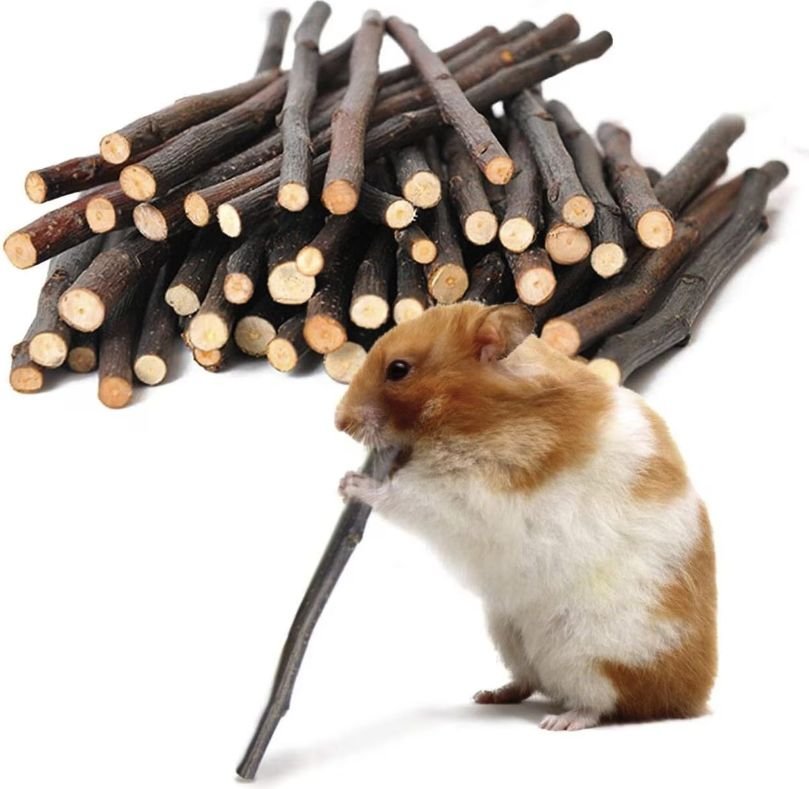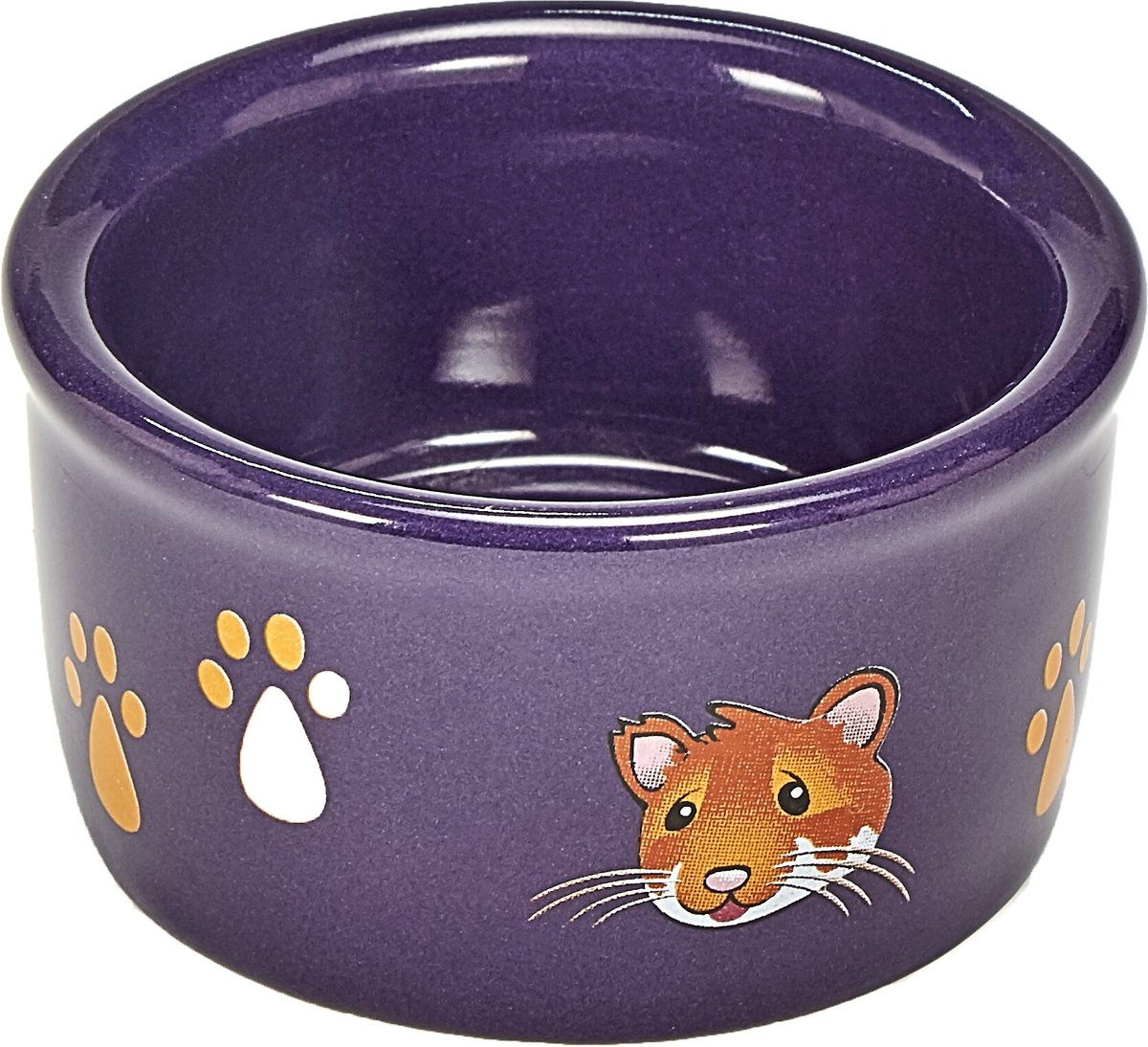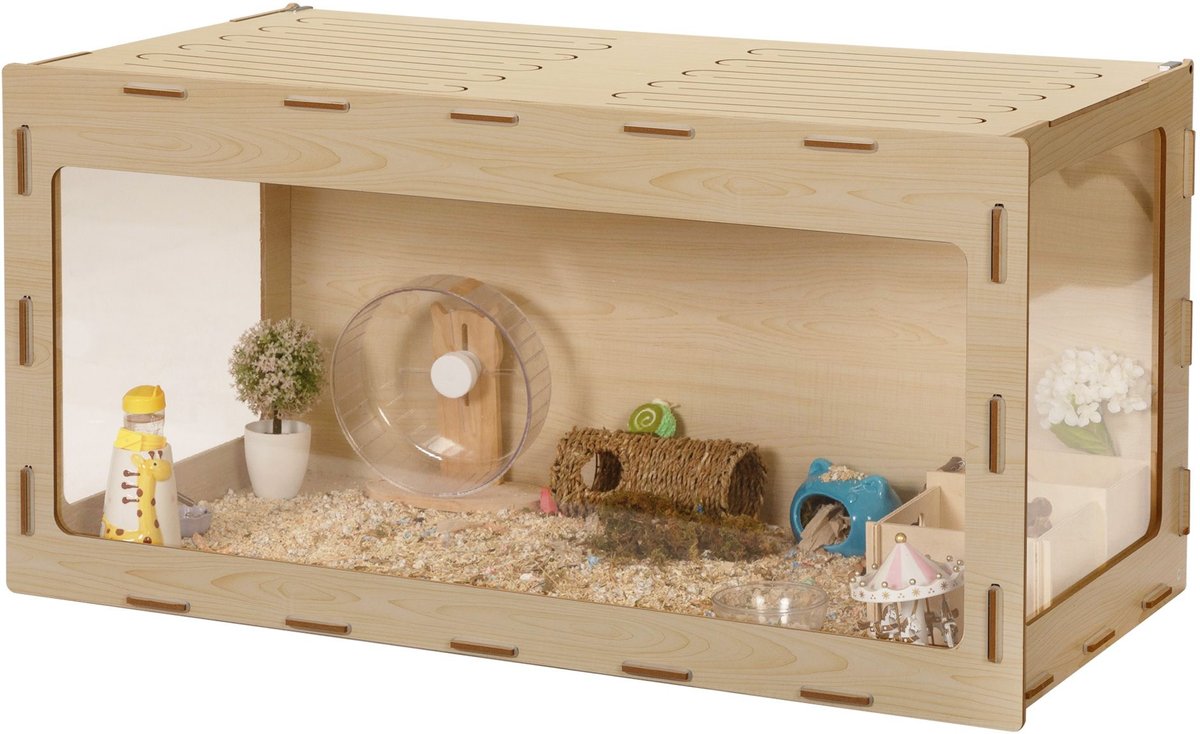Table of Contents
- Table of Contents
- Are Grapes Safe for Hamsters?
- Benefits of Grapes for Hamsters
- How to Safely Feed Grapes to Your Hamster
- Potential Risks of Grapes for Hamsters
- Alternative Treats for Hamsters
- Apple Snack Sticks
- Hamster Food Bowl
- Acrylic Window Hamster Cage & Gerbil Habitat
- FAQs About Feeding Grapes to Hamsters
- Related Reading
- Conclusion
- The Daily Chronicle
- Quick Links
- Categories
Can Hamsters Eat Grapes?
Hamsters are delightful little pets with unique dietary needs, and as a responsible hamster owner, you might wonder whether certain fruits like grapes are safe for your furry friend. The short answer is yes, hamsters can eat grapes in moderation. Grapes are a juicy and sweet treat that many hamsters enjoy, but it's essential to understand how to feed them properly to avoid any health issues.
In this post, we’ll cover everything you need to know about feeding grapes to hamsters, from portion sizes to potential risks and benefits.
Are Grapes Safe for Hamsters?
Yes, grapes are generally safe for hamsters to eat, but only in small amounts. Grapes are packed with vitamins and antioxidants, making them a healthy snack when given occasionally. However, they are also high in natural sugars, which can lead to obesity or diabetes if overfed.
Benefits of Grapes for Hamsters
Rich in Nutrients
Grapes contain vitamins C and K, as well as antioxidants that can boost your hamster's immune system. These nutrients help maintain their overall health and vitality.Hydration Boost
Grapes have high water content, making them a good option for keeping your hamster hydrated, especially during hot weather.Tasty Treat
Most hamsters love the sweet and juicy flavor of grapes, making it an excellent occasional reward.
How to Safely Feed Grapes to Your Hamster
Feeding grapes to your hamster requires some precautions to ensure their safety and well-being.
Wash Thoroughly
Always wash the grapes thoroughly to remove pesticides or chemicals. Organic grapes are an even better option.Remove the Skin and Seeds
Although hamster teeth are strong, the skin of grapes can be tough for them to chew, and seeds can pose a choking hazard. Peel the grape and remove the seeds before serving.Portion Size
Cut a single grape into small pieces and offer your hamster only a small chunk. For dwarf hamster breeds, even tinier pieces are recommended.Observe Your Hamster
After introducing grapes for the first time, monitor your hamster for any signs of allergic reactions or digestive issues. If they show any unusual behavior, stop feeding grapes and consult a veterinarian.
Potential Risks of Grapes for Hamsters
While grapes can be a delightful snack, there are some risks to be aware of:
High Sugar Content
Too much sugar can lead to obesity and diabetes, especially in dwarf hamster breeds that are more prone to these conditions.Digestive Upset
Overfeeding grapes can upset your hamster’s stomach, leading to diarrhea or other digestive problems.Choking Hazard
Whole grapes or large pieces can be a choking risk. Always chop grapes into small, manageable pieces.
Alternative Treats for Hamsters
If you're looking for other healthy snack options, consider these alternatives:
- Small pieces of apples (without seeds)
- Cucumbers for hydration
- Tiny amounts of carrots for a crunchy snack
- Blueberries, another antioxidant-rich fruit
For an even wider selection of treats, check out these must-haves for your hamster:
Apple Snack Sticks
These chew treats are perfect for your hamster to gnaw on, helping maintain their dental health.
Order Now
Hamster Food Bowl
A sturdy and easy-to-clean food bowl to keep your hamster’s snacks fresh and organized.
Order Now
Acrylic Window Hamster Cage & Gerbil Habitat
A spacious and comfortable habitat perfect for your hamster to explore and relax.
Check Price
FAQs About Feeding Grapes to Hamsters
1. Can all hamster breeds eat grapes?
Yes, but the portion size should be adjusted based on the breed. Dwarf hamsters need smaller portions compared to Syrian hamsters.
2. How often can I give grapes to my hamster?
Grapes should be an occasional treat, no more than once or twice a week.
3. Can grapes replace regular hamster food?
No. Grapes are a treat and should not replace the balanced diet provided by hamster pellets or seeds.
Related Reading
Looking for more information on what your hamster can and can’t eat? Check out our guide:
Can Hamsters Eat Cheese?
Conclusion
Grapes can be a healthy and enjoyable treat for your hamster when fed in moderation. By following the proper precautions and understanding their dietary needs, you can keep your little friend happy and healthy. Remember to always monitor your hamster’s reaction to new foods and prioritize their well-being above all else.
With a balanced diet and occasional treats like grapes, your hamster will enjoy a long and joyful life!